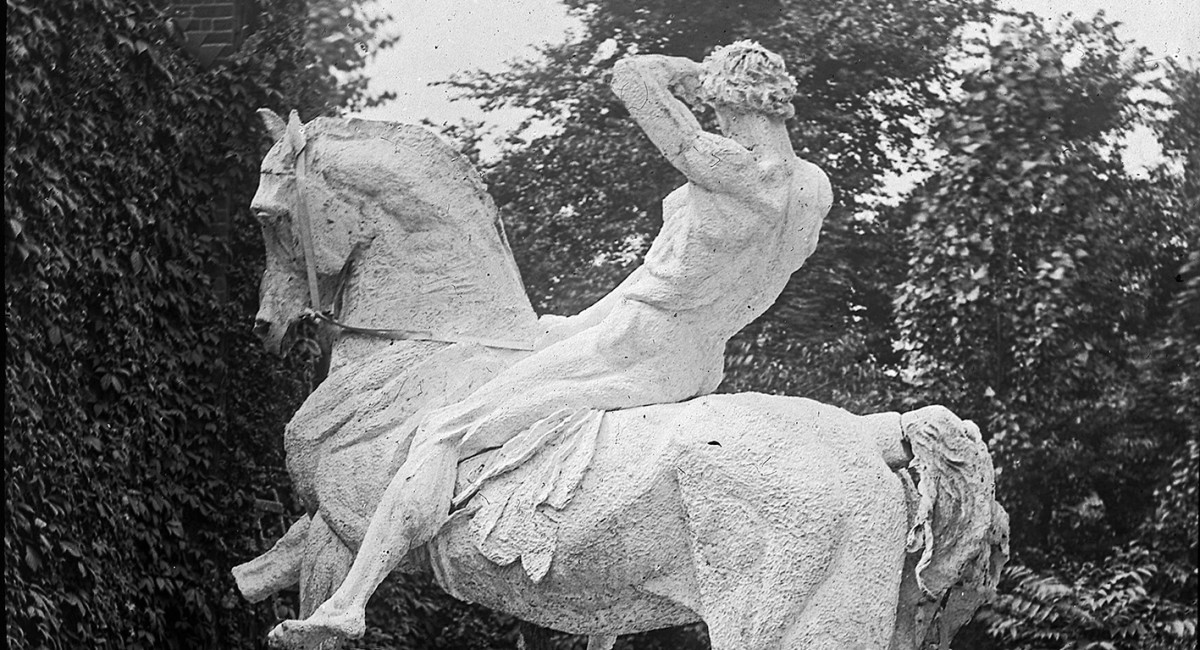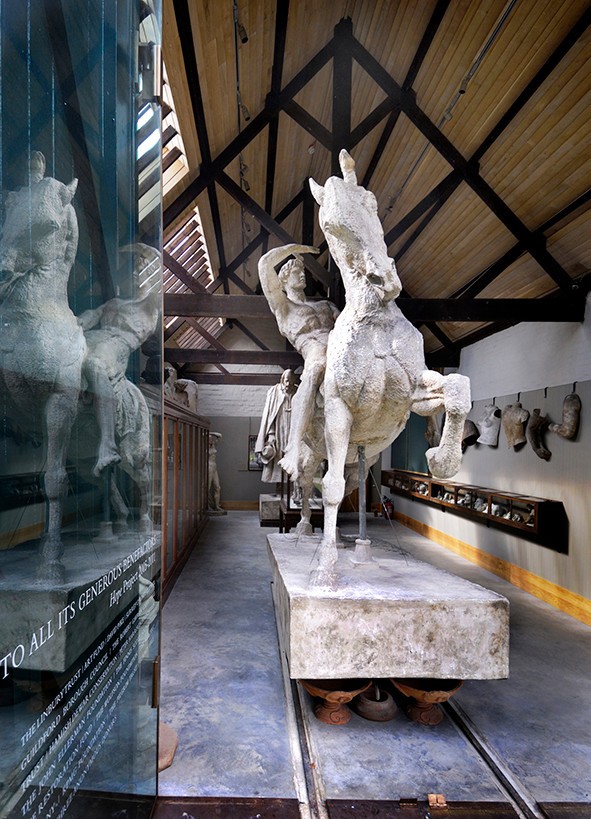Physical Energy
20 Nov 2017 - 30 Mar 2018
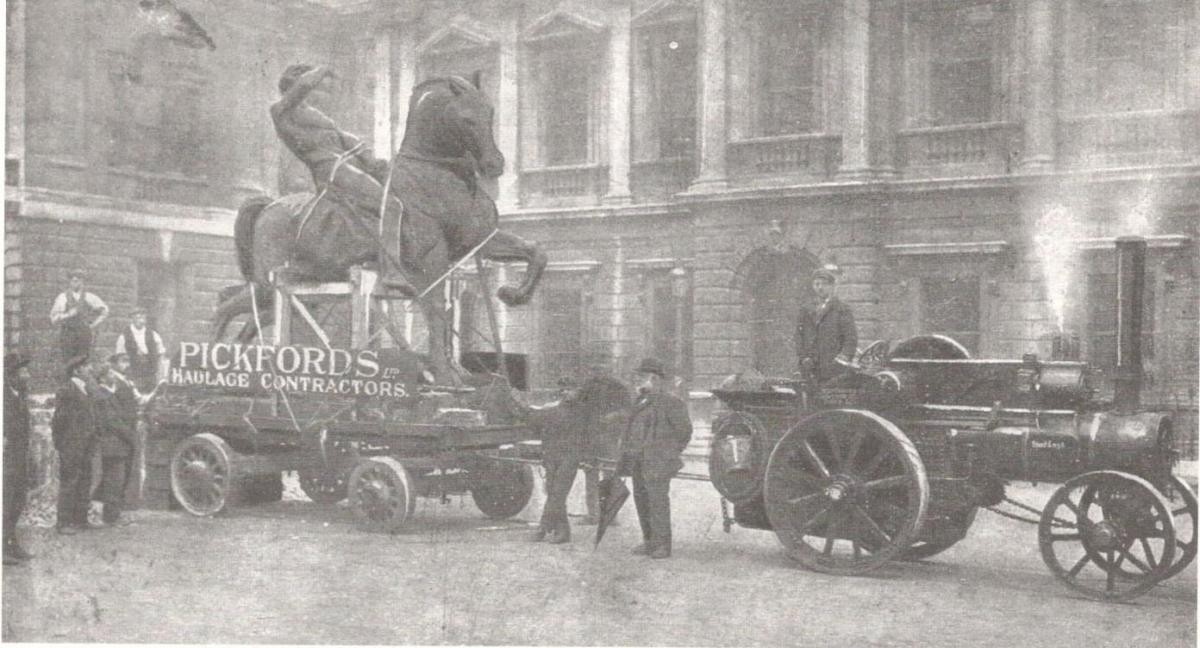
Physical Energy being transported into the Royal Academy's courtyard, 1904
Image courtesy of Watts Gallery
Image courtesy of Watts Gallery
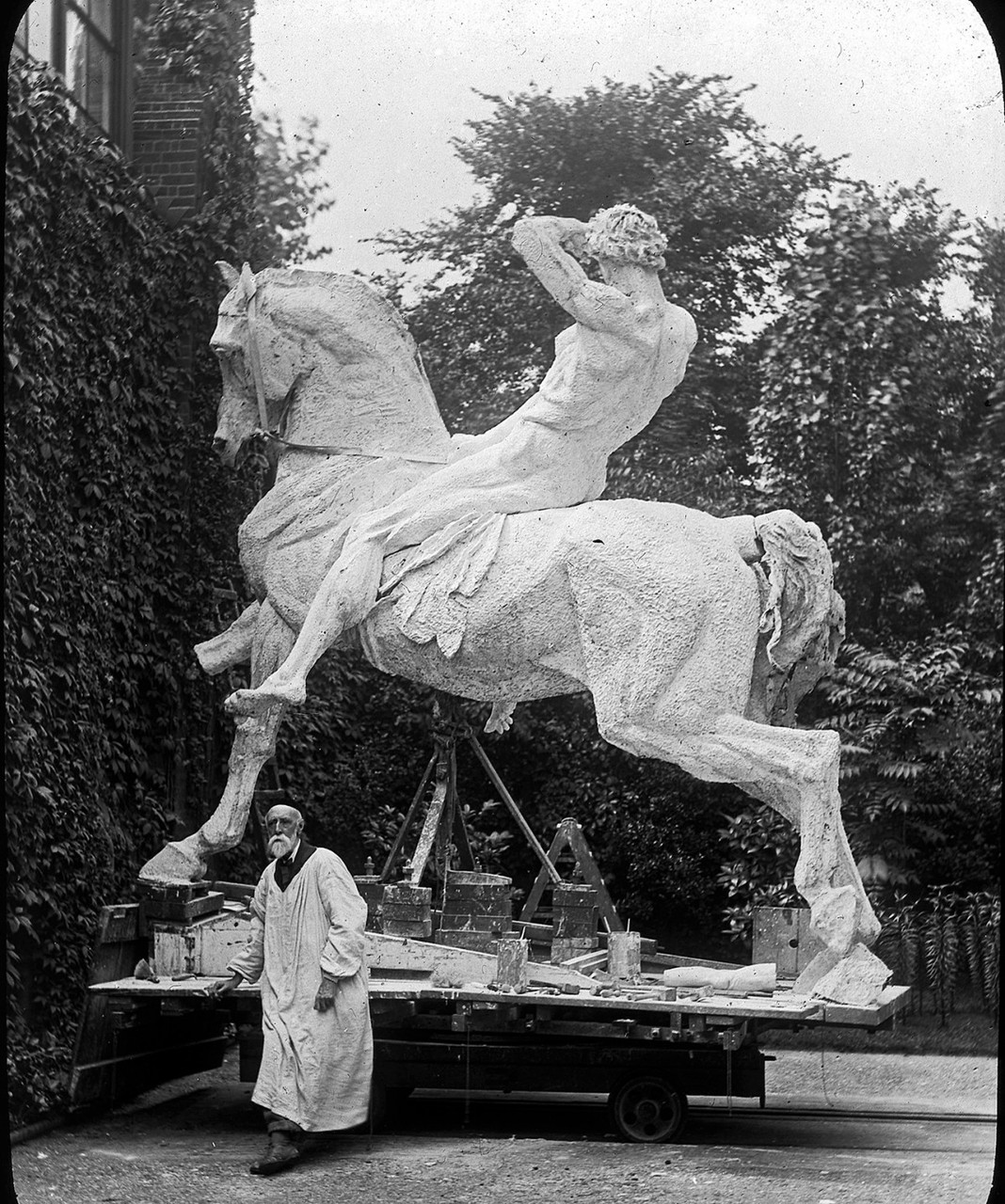
GF Watts with the plaster model of 'Physical Energy', outside his sculpture studio in Kensington, 1890s
Image courtesy of Watts Gallery
Image courtesy of Watts Gallery
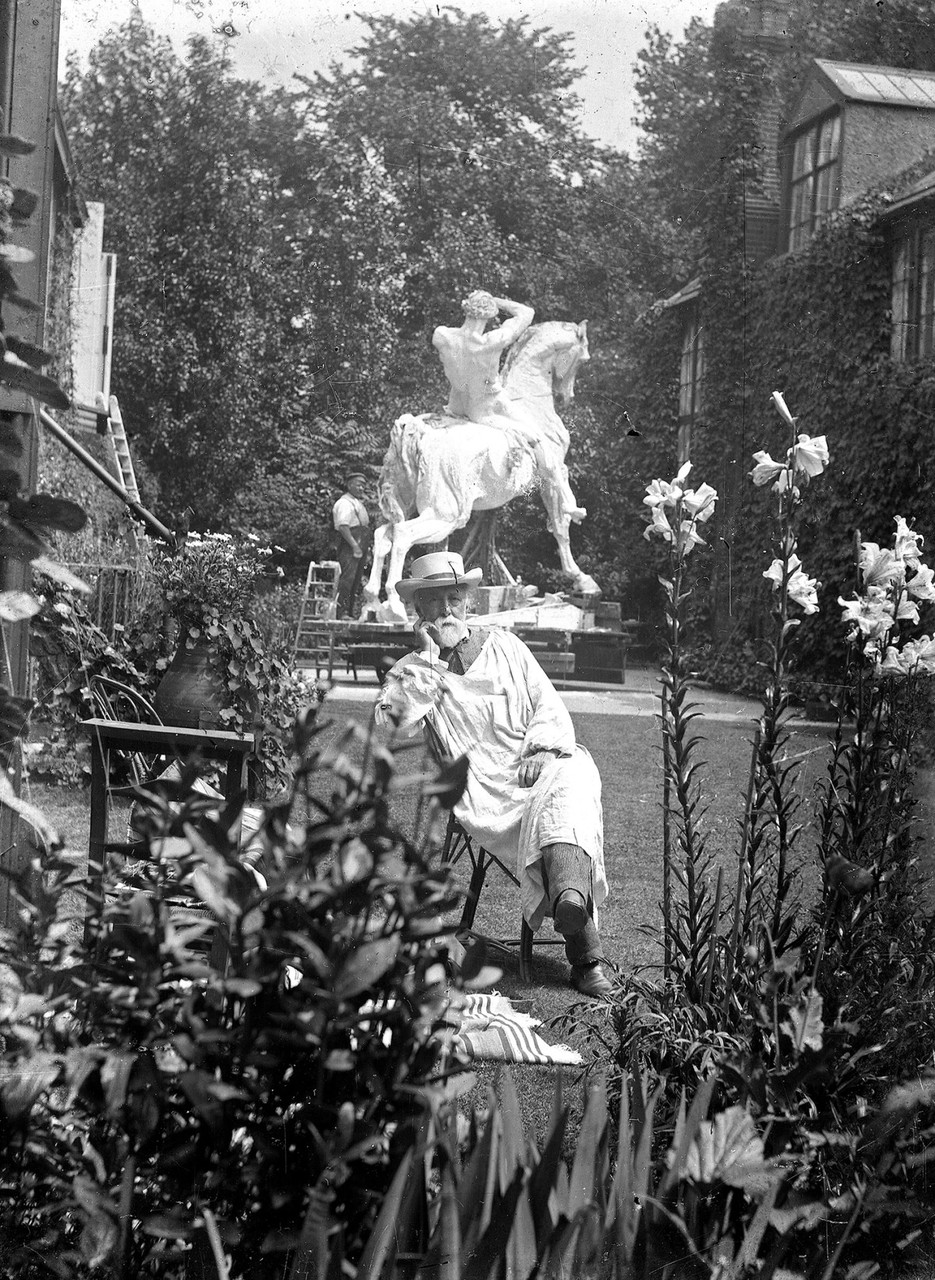
GF Watts with the plaster model of 'Physical Energy', outside his sculpture studio in Kensington, 1890s
Image courtesy of Watts Gallery
Image courtesy of Watts Gallery
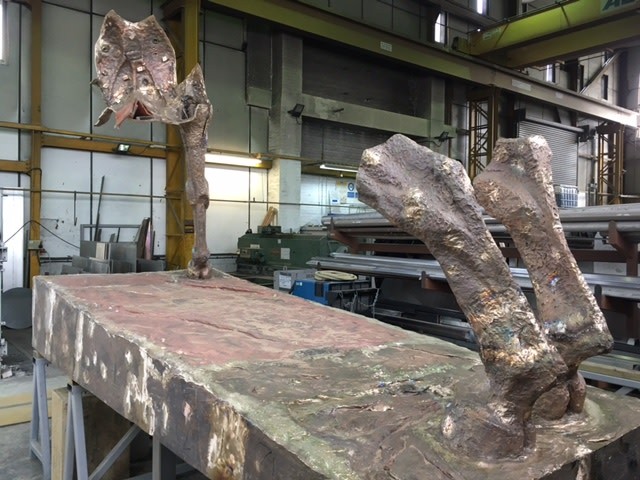
'Physical Energy', bronze cast under construction at Pangolin Editions, 2017
Image courtesy of Watts Gallery
Image courtesy of Watts Gallery
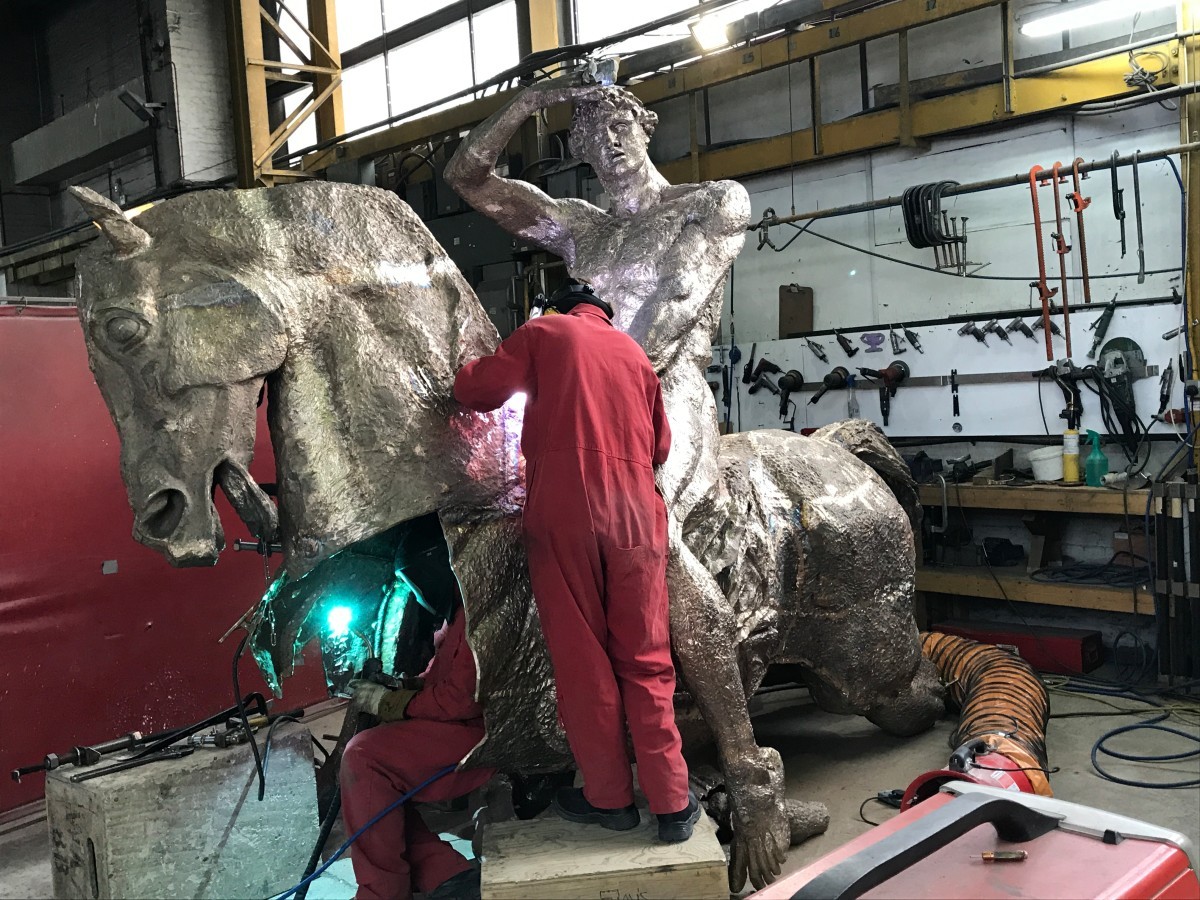
'Physical Energy', bronze cast under construction at Pangolin Editions, 2017
Image courtesy of Watts Gallery
Image courtesy of Watts Gallery
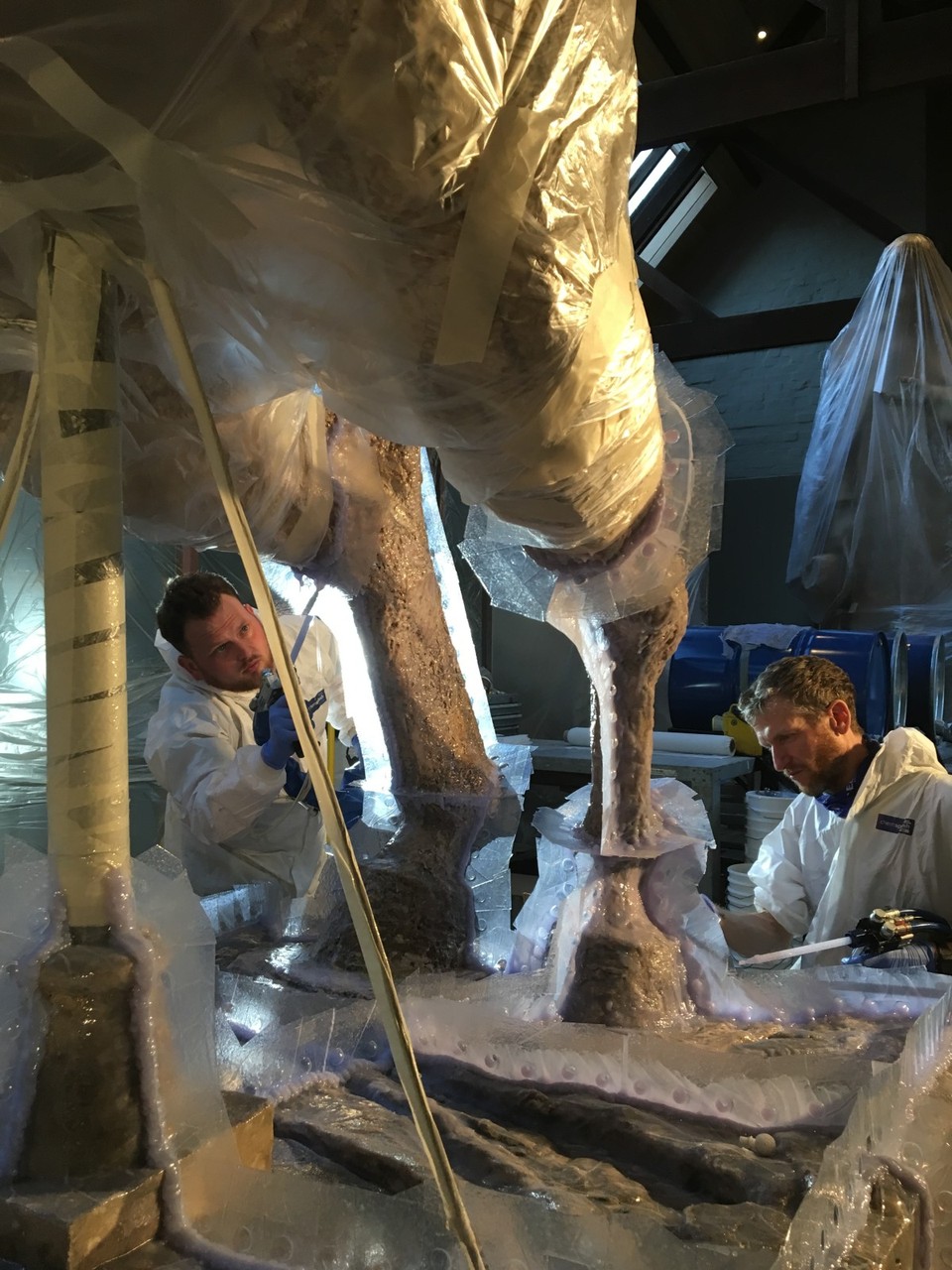
'Physical Energy' mould being created from the plaster model, January 2017
Image courtesy of Watts Gallery
Image courtesy of Watts Gallery
PHYSICAL ENERGY
20 November 2017 — 30 March 2018
The renowned equestrian sculpture by GF Watts, first displayed in the Royal Academy’s courtyard in 1904, returns 113 years later in a new bronze cast.
In collaboration with Watts Gallery Trust, we’re presenting a new bronze cast of Physical Energy by George Frederic Watts RA, cast at the foundry of Pangolin Editions.
Royal Academician George Frederic Watts OM (1817–1904), is widely considered to be one of the greatest artists of the Victorian age. A sculptor, portraitist and creator of classic Symbolist imagery, he became the first living artist to have a solo exhibition at the Metropolitan Museum of Art, New York. The bequest of his paintings made a significant contribution to the founding collections of Tate and the National Portrait Gallery.
Physical Energy was the culmination of Watts’s ambition in the field of public sculpture, embodying the artist’s belief that access to great art would bring immense benefits to the country at large. Having completed a commission for the Duke of Westminster for an equestrian monument to commemorate his ancestor Hugh Lupus in 1883, Watts set to work on a new plaster model of another horse and rider, without specific reference to any individual. Watts intended to gift the work to the British Government, insisting that it should be “for the nation” and displayed “somewhere in London”. Reinvigorating the rhetoric of the equestrian monument for the modern age, Watts conceived Physical Energy as an allegory of human vitality and humanity’s ceaseless struggle for betterment.
The plaster model of Physical Energy was part of the artist’s bequest to the Watts Gallery upon his death in 1904. The first bronze cast of the model, made in 1902, was exhibited in the courtyard of the Royal Academy in 1904 as part of that year’s Summer Exhibition. It then travelled to Cape Town to form part of a memorial to the diamond miner and founder of Rhodesia (now Zimbabwe), Cecil Rhodes. In 1907, a posthumous cast was made and sited in Kensington Gardens, London. A third cast, created in 1959, is situated in the grounds of the National Archives of Zimbabwe in Harare.
In 2017, the Watts Gallery Trust commissioned this fourth bronze cast of Physical Energy to mark the bicentenary of the birth of Watts. Following its presentation at the RA, the cast will be installed permanently at the Watts Gallery – Artists’ Village in Compton, Surrey.
In collaboration with the Watts Gallery Trust.
20 November 2017 — 30 March 2018
The renowned equestrian sculpture by GF Watts, first displayed in the Royal Academy’s courtyard in 1904, returns 113 years later in a new bronze cast.
In collaboration with Watts Gallery Trust, we’re presenting a new bronze cast of Physical Energy by George Frederic Watts RA, cast at the foundry of Pangolin Editions.
Royal Academician George Frederic Watts OM (1817–1904), is widely considered to be one of the greatest artists of the Victorian age. A sculptor, portraitist and creator of classic Symbolist imagery, he became the first living artist to have a solo exhibition at the Metropolitan Museum of Art, New York. The bequest of his paintings made a significant contribution to the founding collections of Tate and the National Portrait Gallery.
Physical Energy was the culmination of Watts’s ambition in the field of public sculpture, embodying the artist’s belief that access to great art would bring immense benefits to the country at large. Having completed a commission for the Duke of Westminster for an equestrian monument to commemorate his ancestor Hugh Lupus in 1883, Watts set to work on a new plaster model of another horse and rider, without specific reference to any individual. Watts intended to gift the work to the British Government, insisting that it should be “for the nation” and displayed “somewhere in London”. Reinvigorating the rhetoric of the equestrian monument for the modern age, Watts conceived Physical Energy as an allegory of human vitality and humanity’s ceaseless struggle for betterment.
The plaster model of Physical Energy was part of the artist’s bequest to the Watts Gallery upon his death in 1904. The first bronze cast of the model, made in 1902, was exhibited in the courtyard of the Royal Academy in 1904 as part of that year’s Summer Exhibition. It then travelled to Cape Town to form part of a memorial to the diamond miner and founder of Rhodesia (now Zimbabwe), Cecil Rhodes. In 1907, a posthumous cast was made and sited in Kensington Gardens, London. A third cast, created in 1959, is situated in the grounds of the National Archives of Zimbabwe in Harare.
In 2017, the Watts Gallery Trust commissioned this fourth bronze cast of Physical Energy to mark the bicentenary of the birth of Watts. Following its presentation at the RA, the cast will be installed permanently at the Watts Gallery – Artists’ Village in Compton, Surrey.
In collaboration with the Watts Gallery Trust.

